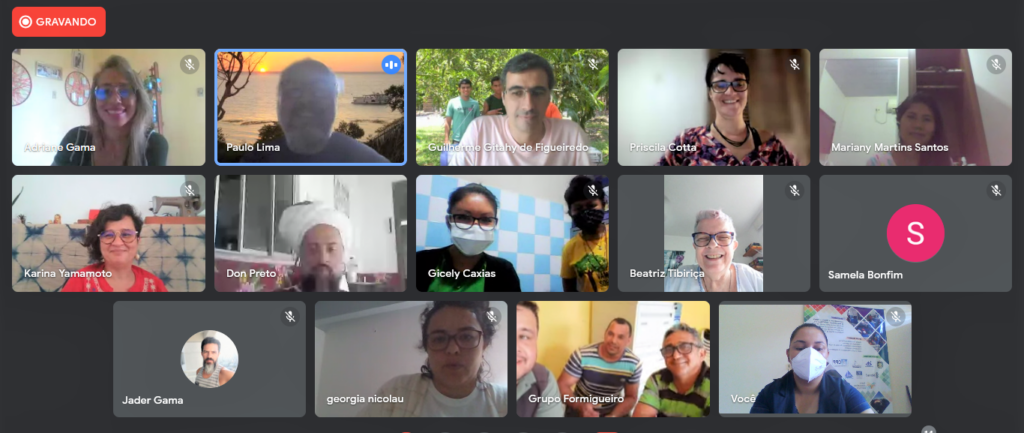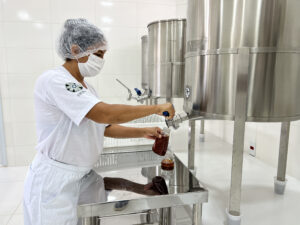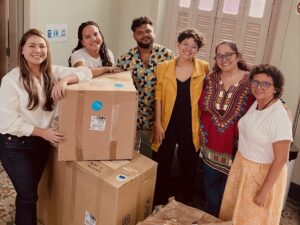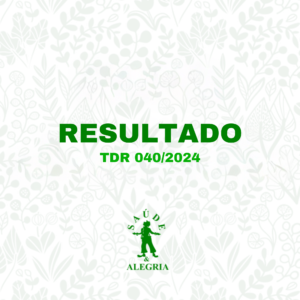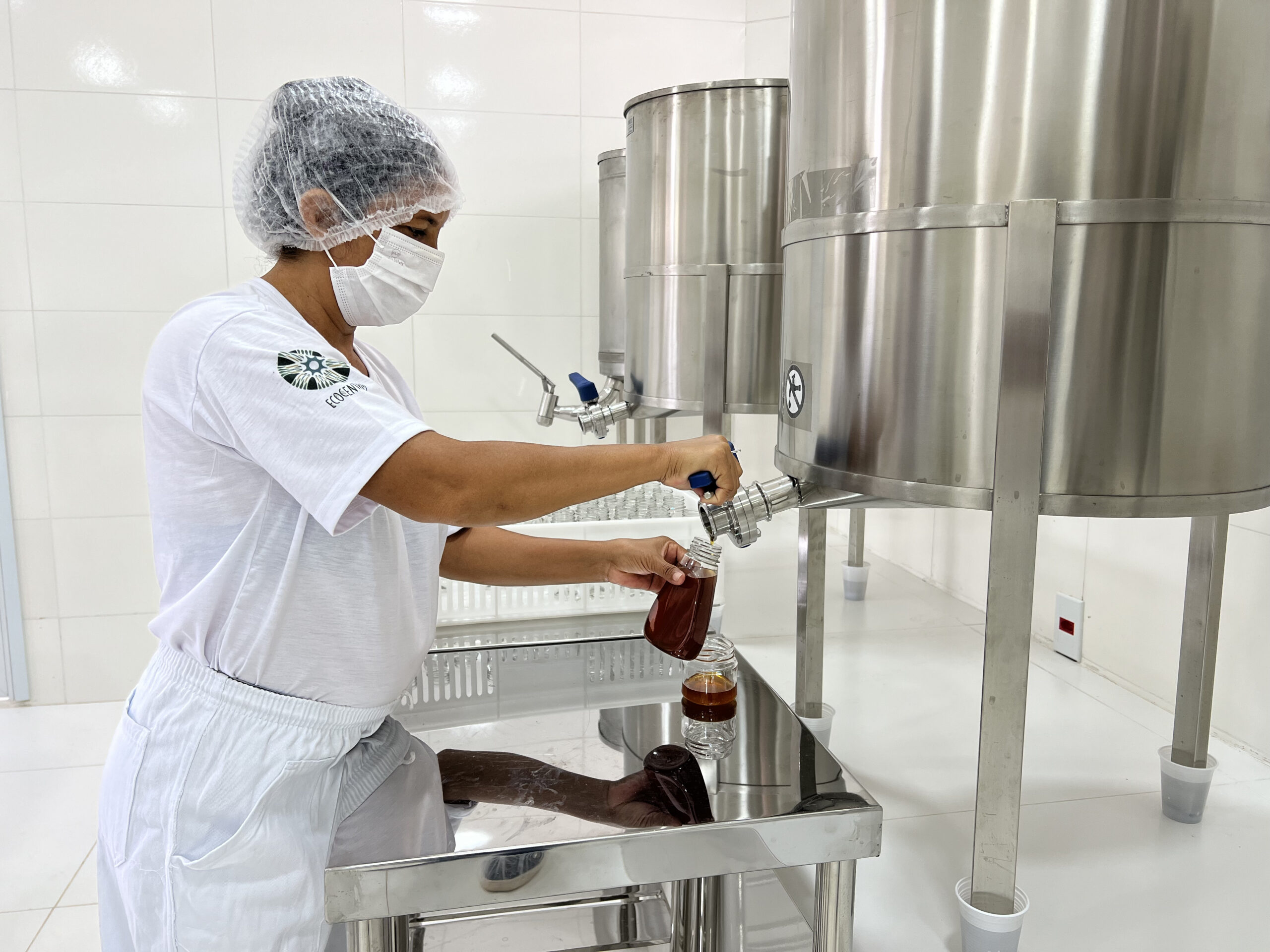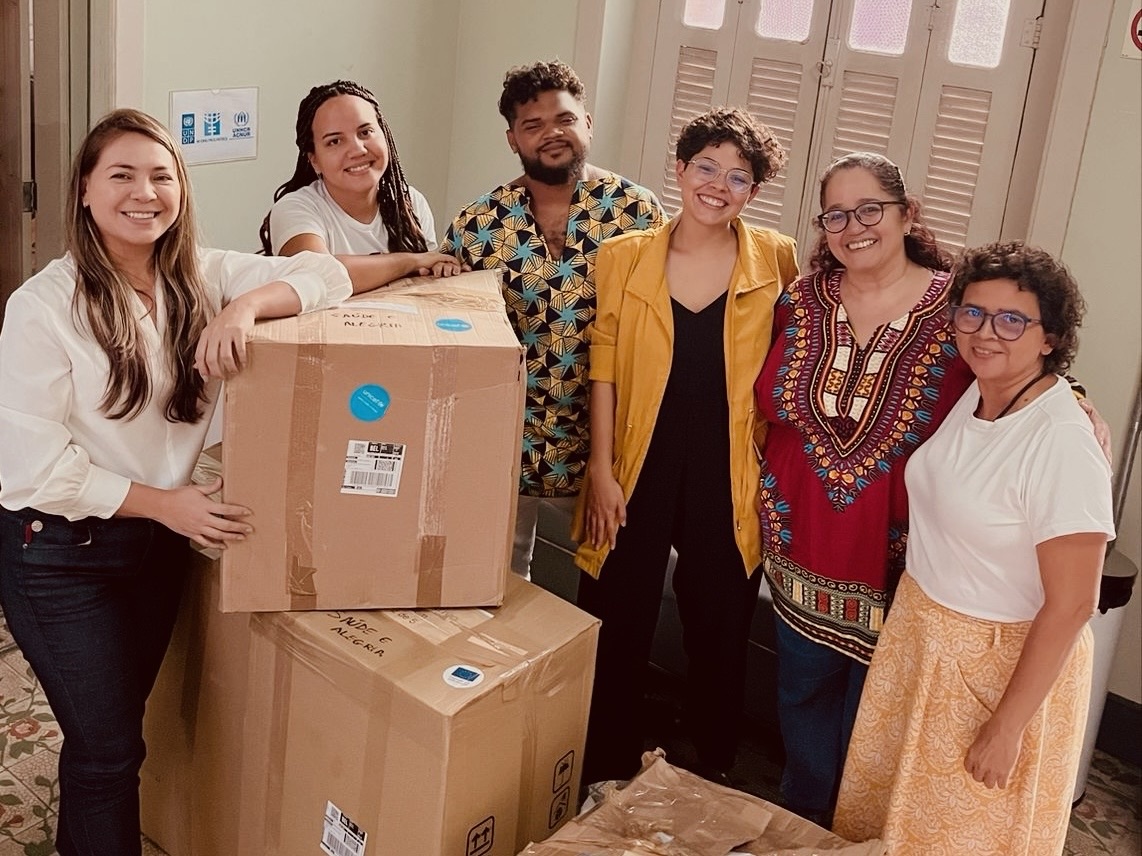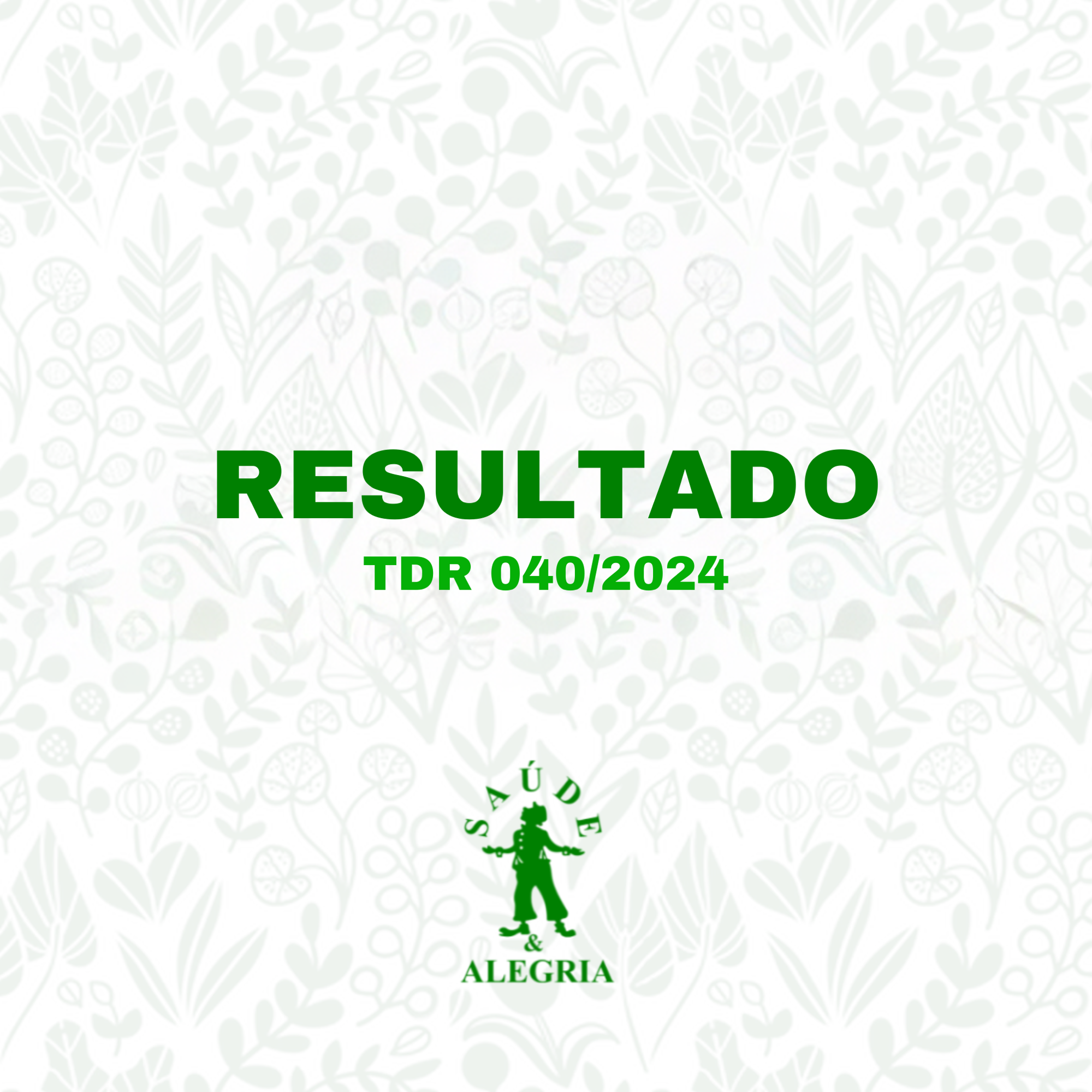December 13, 2021 / Education, Culture and Communication / Community Networks
Promoted by the organizations APC and Rhizomatica, the school is part of the global initiative; “Connecting the Disconnected”, which runs until March 2023
On December 3rd, the Saúde e Alegria Project started the activities of the School of Community Networks in the Amazon. After seven months of research, study of the territory and selection of experts and organizations, the first meeting was held to prepare the school’s programmatic content.
The goal of the “Connecting the Disconnected” project, of which the school is the training pillar, is to connect disconnected communities through the development of models, capacities, and forms of sustainability for populations with focus on technical assistance, capacity building, advice for advocacy, and community mobilization.
By means of a methodology based on collective creation, the content to be addressed with the 21 students from organizations in three states of the Legal Amazon (Acre, Amazonas, and Pará), started to be created from this first meeting between leaders of these communities and specialists. The expectation is that a collective mapping of important themes will be made to strengthen the community networks involved, and that the activities with the students of this first group will take place from June to December 2022.
The board of experts is formed by Beatriz Tibiriçá (General Coordinator, Coletivo Digital), Georgia Nicolau (Director of Projects and Partnerships Pró Comum), Jader Gama (Researcher – UFPA), Doriedson Almeida (Professor – UFOPA), Karina Yamamoto (Researcher – USP and Jeduca), Guilherme Gitahy de Figueiredo (Professor UEA – Tefé – AM) and Carlos Afonso (Executive Director – NUPEF Institute).
The communities selected to first co-create the program and then have members participate in the training are: in Pará, the projects Ciência Cidadã in Aldeia Solimões and Guardiöes do Bem Viver in PAE Lago Grande – both in the municipality of Santarém – and Rede Águas do Cuidar/ Casa Preta on the island of Caratateua, Belém. In the state of Amazonas, the Marajaí Village, municipality of Alvarães – Middle Solimões; the Formigueiro Group of Vila de Lindóia in Itacoatiara; and the Wayuri Network in São Gabriel da Cachoeira. In Acre, the Puyanawa Village in Mâncio Lima.
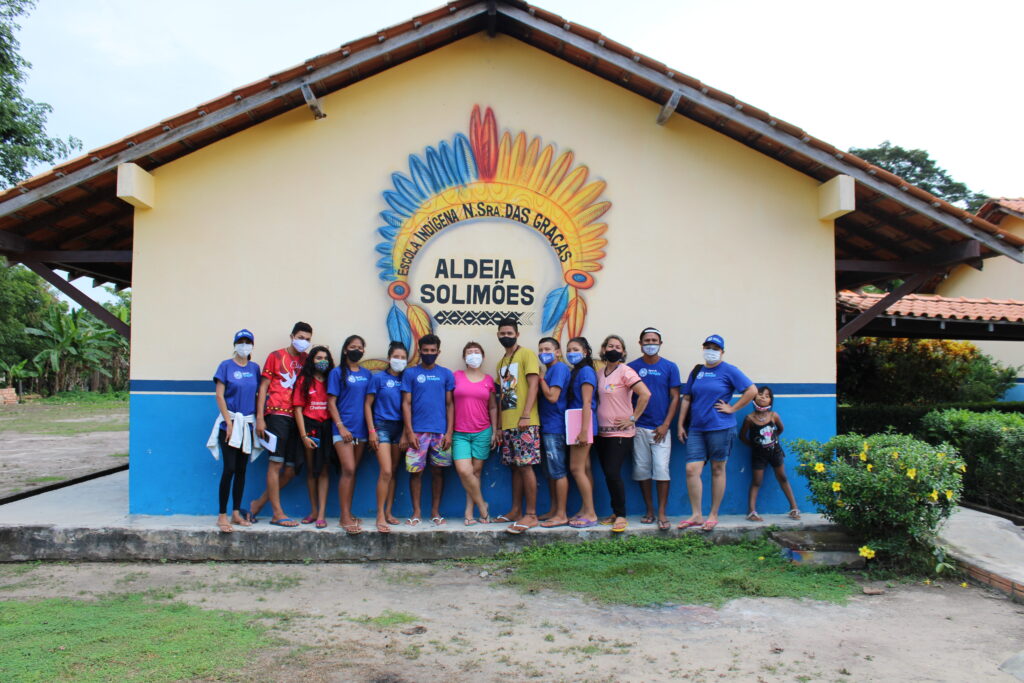
“The Saúde e Alegria Project has a long trajectory in digital inclusion since the creation of the Mocoronga Network of Popular Communication in 1986. In 2008 we were Pontão de Cultura Digital (Digital Culture Pointer),” says Paulo Lima, coordinator of Saúde e Alegria at the head of this project. “It is an immense joy to be able to return strongly to this agenda and in a moment of updating the concept in which we broaden the look of digital inclusion to community networks, which today makes much more sense.”
What are Community Networks?
Community networks are groups organized to fulfill collective dreams for the territory, where they share knowledge and express the desire to conquer the right to use the Internet, to access technologies for social participation, to participate in community radio stations, and in communication training processes.
One of the pillars of a community network is the shared management process in which groups of people organize themselves to discuss and articulate actions around their needs, quality of life, and well-being. In this process of social empowerment and autonomy, the community organizations and associations seek ways to integrate the members of the network, seeking to bring access to information and/or technology into the community.
Created as a democratic space, the Community Networks start from the principle of respect for the freedom and neutrality of the network. With a dynamic of active participation of its members, they operate with or without support from third sector entities, aiming at a collective property.
Although the network enables the strengthening of local experiences, promotes spaces of sociability, environmental engagement and access to information in participatory processes, there are still many challenges in the implementation of community networks. Among them:
LEGAL ISSUE: need for the institution of law and new incentives that legalize community networks.
ENERGY: Riverside communities suffer from the difficulty of access to energy, which hinders the use of the internet and community radios. There is a need for the installation of solar energy systems.
DIGITAL EXCLUSION: many networks are located in areas of difficult access, where internet connection is precarious.
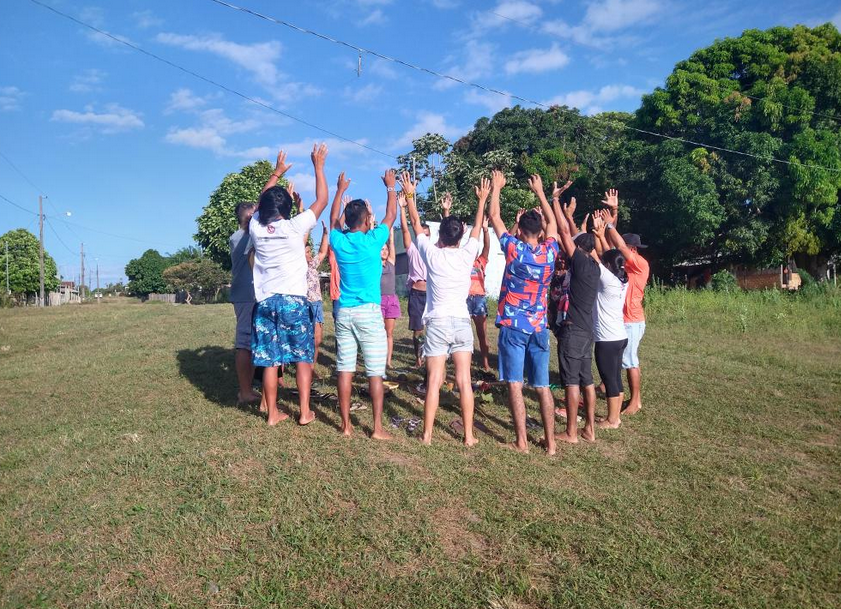
Saúde e Alegria in Disconnecting the Disconnected
In 2021 the Saúde e Alegria Project became part of the Community Networks Project Network, which seeks to connect disconnected communities through the development of models, capacities and forms of sustainability for populations in the Amazon.
The project aims to support community-led strategies to address the digital divide and is an initiative of the Association for Progressive Communications (APC) in partnership with Rhizomatica. In Brazil, PSA is the meso level partner organization accredited for the development of community networks in the Amazon region.
With financial support from the UK Government’s Digital Access Programme, the project seeks to unleash more accessible and inclusive connectivity solutions for excluded communities in rural and urban areas. The project is running from 2020/2023 and provides technical assistance, capacity building, advice for advocacy, and community mobilization, focusing on five priority countries: Brazil, Indonesia, Kenya, Nigeria, and South Africa.
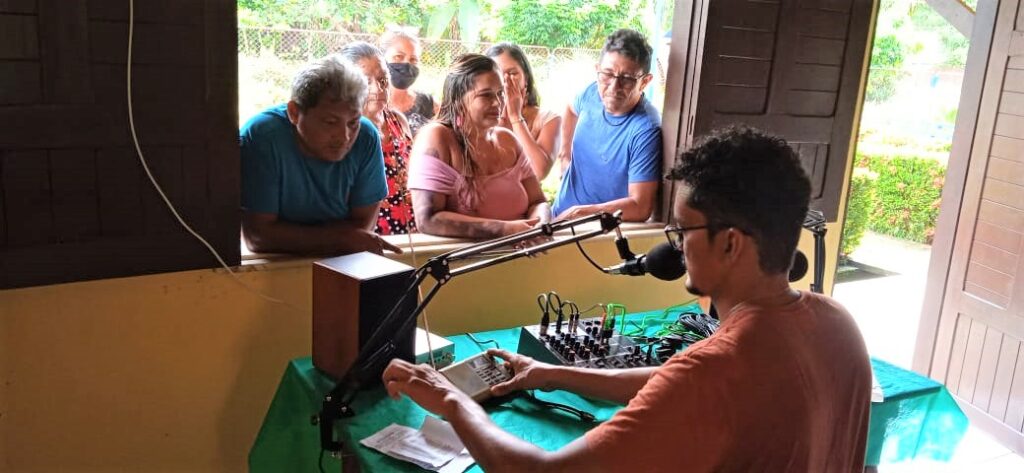
Rhizomatica founder, Local Networks (LocNet) board representative Peter Bloom, explained that with the execution of the project, the following outcomes are expected: “Increased capacity and resources for individuals, especially women, and organizations that promote digital inclusion models capable of providing access to unconnected or low-connectivity (micro-level) populations; strengthening of organizations that support community networks to articulate viable ways to address common barriers through shared knowledge, shared platforms, collective action and mobilization of stakeholders (meso level) and creation of a better policy, legal and regulatory environment for community networks as a complementary model of inclusive connectivity at the macro level addressing barriers faced by local micro and meso level organizations”.

